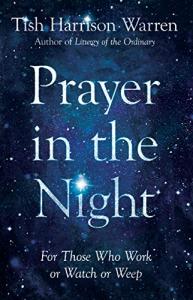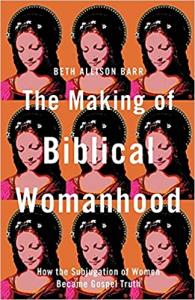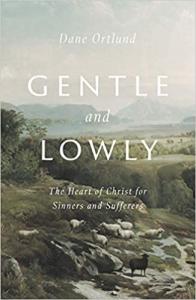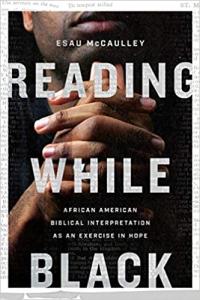I have a cookie every night before bed. I’m not sure whether this is physically healthy, but it’s definitely good for my soul. This is in large part because the cookie accompanies a book. As I wind down from the day, it is my practice to stop reading for work and read something for spiritual nourishment instead.
I am particularly excited about my 4-book reading list for this season. All have been published in the last year. Two authors are Anglican, one is Presbyterian, and one is Baptist. Two authors are women and two are men. One is a person of color. Two books focus on our personal relationship with God and two focus on how that relationship enables us to love our neighbors well. (All four would readily assent that the two greatest commandments, to love God and our neighbor, are intertwined.)
And all four also have a humorous common thread: they are deeply informed by history. Apparently this historian can’t completely escape her profession when she winds down at the end of the day. But it’s not my fault: good theology is informed by history!
So if you too are looking for a new book with spiritual depth informed by the riches of church history, look no further. In the order I am reading them:
 Tish Harrison Warren, Prayer in the Night: For Those Who Work or Watch or Weep (2021)
Tish Harrison Warren, Prayer in the Night: For Those Who Work or Watch or Weep (2021)
Warren won the Christianity Today 2018 Book of the Year Award for Liturgy of the Ordinary: Sacred Practices in Everyday Life. I would not be surprised if she wins this year again for Prayer in the Night. It’s that good. Warren writes an extended meditation on a piece of the Anglican Book of Common Prayer‘s daily office of Compline, the prayers at the end of the day: “Keep watch, dear Lord, with those who work, or watch, or weep this night, and give your angels charge over those who sleep. Tend the sick, Lord Christ; give rest to the weary, bless the dying, soothe the suffering, pity the afflicted, shield the joyous; and all for your love’s sake. Amen.” She commends the use of the historic prayers of the church to believers who are burdened such that they struggle to find the words to speak to God. Start, she suggests, by borrowing words that have withstood the test of time by Christians in different places and circumstances. These words in particular point us toward how to find comfort and hope in God amidst the wide variety of experiences of human suffering. This book has been life-giving as I begin to emerge from and process the grief of the past year.
 Beth Allison Barr, The Making of Biblical Womanhood: How the Subjugation of Women Became Gospel Truth (2021)
Beth Allison Barr, The Making of Biblical Womanhood: How the Subjugation of Women Became Gospel Truth (2021)
Not only is Beth a fellow Anxious Bench blogger; she is also my Baylor colleague and has served for many years as a mentor. So I have been eagerly anticipating this book’s release. By happy coincidence, I finished Warren shortly before Barr’s book shipped last week, so I am now in the middle of it. Many books have been written defending alternately the complementarian or the egalitarian interpretation of the Bible. The first argues that men and women are designed for different roles in church and home, with men as leaders, and the second argues that churches and families flourish when men and women serve alongside one another in all roles. What makes Beth’s book unique is that she situates modern American evangelical conservative gender ideals within the full sweep of church history. She argues that Scripture pushes against patriarchy rather than toward it and that what complementarians assume has “always been the church’s interpretation” is in fact a more modern invention. Baptist Beth is a medieval historian and so a particularly notable aspect of her approach is that she brings to bear that part of church history, often ignored by evangelical Protestants, who frequently excise the time period between Acts and Luther.
 Dane Ortland, Gentle and Lowly: The Heart of Christ for Sinners and Sufferers (2020)
Dane Ortland, Gentle and Lowly: The Heart of Christ for Sinners and Sufferers (2020)
This book came to my attention when I heard on Twitter that some hard-core Reformed male complementarians had criticized it for portraying Jesus as too…gentle and lowly. Basically not enough like John Wayne. This despite the fact that the author is himself a PCA pastor, and hence a Reformed complementarian. This was the kind of book I want to read, for two reasons. First, because one excellent book on God’s heart for those who suffer (Prayer in the Night) was just not enough to process this past year. Second, because here is someone from a subculture that has partaken of the problematic militant-style masculinity that fellow Anxious Bench blogger Kristin Kobes Du Mez has so deftly analyzed and who is nevertheless recovering a more accurate biblical understanding of Jesus. It was the Puritans who pointed the way. As Anglican Warren found historical inspiration in the Book of Common Prayer, and medieval historian Barr in the Middle Ages, so Presbyterian Ortland discovered in the Puritans a different view of God than the one that dominates much of modern American evangelicalism.
 Esau McCaulley, Reading While Black: African American Biblical Interpretation as an Exercise in Hope (2020)
Esau McCaulley, Reading While Black: African American Biblical Interpretation as an Exercise in Hope (2020)
As a white Christian whose spiritual formation took place within white evangelicalism, I can naturally gravitate toward white spiritual authors. But that means I would miss the hard-won wisdom of Christians who have walked with God under different circumstances. In the next life, we are told that each culture will bring its treasures into the eternal city. So I consciously try to diversify my reading. In this book, Anglican McCaulley (who was raised Black Baptist) proposes that the African American ecclesial interpretive approach to Scripture represents a profitable “third way” between white liberal Protestants and white conservative Protestants. The Black church too has variation but on the whole has tended to hold together social justice and historic Christian orthodoxy more than the white Protestant church in America. Black Christians have been attuned to injustice–because they have experienced a lot of it–but they have also found the deep resources to hope and fight for change in the historic teachings of the church.
*Yes, you read that title right: a historian’s spiritual reading list. Come at me.














